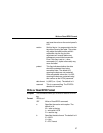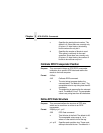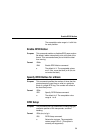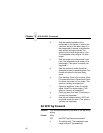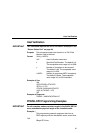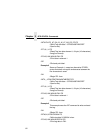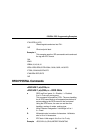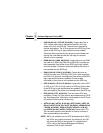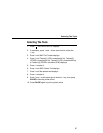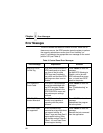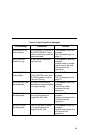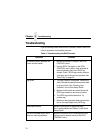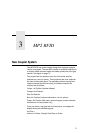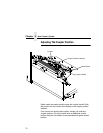
Tools List
65
Software Migration Tools (SMT)
There are SMTs for six separate end-use applications supporting
both PGL and PPI/ZGL datastreams with 64 and 96 bit tag options
for a total of 24 tools. Each tool intercepts bar code data in a host
datastream and copies the data to an RFID tag (embedded in a
smart label) according to a set of rules as defined below. SMTs
assume that only one bar code of the type being processed is
present. In the event that there is more than one of a given type of
barcode present, only the first is processed.
Bar code information encoded as dynamic data is supported. To
avoid ambiguity, where bar code data is provided in the form of
dynamic data, the RFID tag will be encoded with only the contents
of the first variable bar code field. It is your responsibility to ensure
that the first variable bar code is the desired bar code.
NOTE: Dynamic data is variable data entered into specific
locations on each form definition. Each time the form prints,
a single command enters new data into those locations
supplied in the datastream after form definition has been
completed.
Tools List
• GTIN (64 bit) / GTIN_96 (96 bit): According to Uniform Code
Council standards there are two permissible bar codes on
standard case labels: UCC-128 and Interleaved Two of Five
(ITF14). These are the typical bar code carriers for the GTIN
(Global Trade Identification Number). This tool copies data
from either an ITF14, or from a UCC-128 barcode with an
Application Identifier of 01 (which indicates an SCC-14) to an
RFID tag. If barcode checksum data is included in your
datastream, it will be encoded onto the tag. If your datastream
requests the printer to calculate the bar code checksum, it will
not be encoded onto the tag. In the case of the UCC bar code,
the (01) application identifier is not written to the tag. Data
written to the RFID tag is right justified and zero padded.



